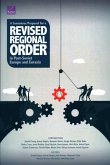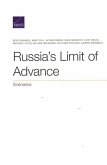During a boat trip on the Baltic, Jan Brokken chanced upon Pärnu harbour, on the Estonian coast of the Gulf of Riga. It was an unforgettable introduction to the Baltic lands: Estonia, Latvia and Lithuania, and the Russian enclave of Kaliningrad. The extraordinary light, the tranquil landscape and the stories he heard there drew him back time and again. In Baltic Souls, Brokken connects the cultural richness and social diversity of the region over the past eight centuries with tales of personal tragedy and a first-hand account of his travels. A remarkable number of talented people have come from this relatively small, sparsely populated area, many of them Jewish in origin. Brokken looks at twenty of those who have left their mark on art and culture worldwide, from filmmaker Sergei Eisenstein and philosopher Hannah Arendt in the early decades of the twentieth century to figures of our own time including violinist Gidon Kremer, composer Arvo Pärt and dancer Mikhail Baryshnikov. Despite fame and success, their lives were overshadowed by sadness and loss. Many left their native countries to escape the Nazis or Communists, while others saw their families all but obliterated in the Second World War or in post-war ethnic cleansing. Brokken describes several lives marred by tyrannical fathers, a theme that holds a personal fascination for him, to judge from his earlier autobiographical books. Many prominent figures, burdened by the past, met a tragic end, like the writer Romain Gary and the painter Mark Rothko who both committed suicide. Brokken weaves together these and other heroic if less well known lives to tell the unsettling story of the Baltic region and its changing fortunes, describing how the different population groups have interfered with each other, taking on the role of oppressor or victim by turns. He is happy to go off on other tracks that lead to new discoveries, investigating, for example, the fate of several Baltic barons and their descendants; owners of vast estates who lorded it over the local population, they became pawns in the far greater power games played by Hitler and Stalin. Until the fall of the Soviet Union, the Baltic countries were part of the Socialist empire. Now that they have regained their independence, local Russians find themselves demoted to the status of second-class citizens. In this absorbing epic, Brokken empathises with these latest victims - they too have left their stamp on the Baltic soul.
Hinweis: Dieser Artikel kann nur an eine deutsche Lieferadresse ausgeliefert werden.
Hinweis: Dieser Artikel kann nur an eine deutsche Lieferadresse ausgeliefert werden.








